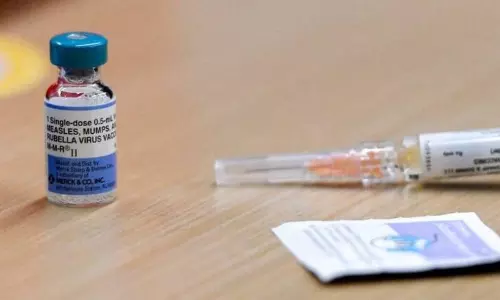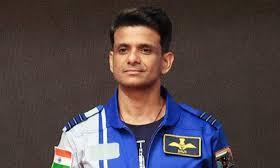
Indian astronaut Shubhanshu Shukla to conduct space experiments on crops and microbes
text_fieldsIndian astronaut Shubhanshu Shukla is gearing up for a historic scientific mission aboard the International Space Station (ISS) as part of the Axiom Mission-4 (Ax-4) scheduled for late May.
During his 14-day stay, Shukla will lead and contribute to at least seven innovative experiments focused on space agriculture, microbiology, and astronaut well-being - signifying India’s deepening role in international space research.
The mission is a joint initiative between the Indian Space Research Organisation (ISRO), NASA, and the European Space Agency (ESA), and will feature astronauts from the United States, Hungary, and Poland as well.
One of the key highlights of the mission will be the study of tardigrades - microscopic organisms also known as water bears - renowned for their ability to survive extreme environments, from deep-sea trenches to the vacuum of space.
Conducted in collaboration with NASA and Voyager, this experiment will examine how tardigrades revive, survive, and reproduce in microgravity. Researchers will compare their gene expressions with those of Earth-bound counterparts to unlock insights into their biological resilience, potentially aiding both space exploration and biotechnology on Earth.
Another crucial study will assess how astronauts interact with digital screens in microgravity. The experiment will analyse eye movement, gaze fixation, and stress responses while using computer interfaces in space - data that could inform the design of next-generation spacecraft systems.
In the field of space agriculture, Shukla will participate in ISRO's "Sprouting Salad Seeds in Space" project with NASA and BioServe Space Technologies. This initiative will focus on the germination, growth, and nutritional profile of crop seeds over multiple generations, aiming to secure reliable food sources for extended missions.
Further, the "Space Microalgae" experiment - conducted in partnership with NASA and Redwire - will explore the behavior of three edible microalgae strains under microgravity. These nutrient-dense organisms are considered a promising food solution for future deep-space travel.
ISRO and ESA are also examining cyanobacteria - photosynthetic aquatic bacteria - with a focus on understanding their growth and metabolic responses in space. The long-term vision is to incorporate such microbes into life support systems for sustainable space habitats.
Muscle degeneration in space is another pressing concern addressed in this mission. A joint study with NASA and BioServe Space Technologies will explore how metabolic supplements can support muscle regeneration in microgravity, potentially leading to treatments for muscle disorders on Earth as well.
























